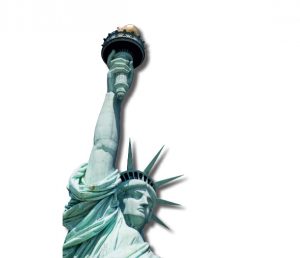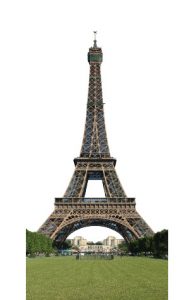Joined at the hip or disparate entities? A plea for rational discourse, tolerance and historical responsibilities in transatlantic relations…

George Hodan (CC0 1.0) http://www.publicdomainpictures.net CC0 1.0 Universal
In 1933, the Marx Brothers filmed Duck Soup. There are two scenes in which Chicolino (Chico) disputes what another person has just ascertained. Chico is nothing but logical, taking a page from Lewis Carroll: “Who you gonna believe, me or your own eyes?” The best interpretation of Marxism.
I have never read Trump’s The Art of the Deal, and I don’t intend to. Aside from the fact that it was ghost-written by a man who just jotted down Trump’s exaggerations, at the end of the day, there has to be a handshake, a mazel and a broche to seal a deal. How can anyone shake this man’s hand? I am not meshugge.
We know much more about Trump than we need to know. He has no humility, no sense of history, and, until the gas attack, no empathy, and craves adulation; perhaps the worst thing for other sentient beings: he has no antenna for distinguishing nutty conspiracy theories by crackpot talk-radio slobs from verifiable information. He tweets against ‘fake news’, but he is both purveyor and victim, and he is ignorant of that. He is no role model – kids imitate him in school, teachers tear their hair out. Mothers are also warned: when Trump is on TV, keep the kids occupied with something else.
Facts are the result of agreements, spoken or tacit, learned or inherited, by which we regulate social and political life; many, if not most of them, have come down to us from the Decalogue and the Sermon on the Mount: ‘don’t lie’, ‘don’t murder’ are basic. Daniel Patrick Moynihan put it bluntly: “Everybody has the right to his own opinions, nobody has the right to his own facts.”
Agreeing on basics
If, as we must have learned from Orwell and Huxley, there is no way to know the truth or to agree on the days of the week, that left is left and right is right, that up is up and down is down, we cannot engage in rational discourse. A king cannot rule, a minister cannot preach, a chancellor cannot enforce laws, a parliament cannot decide on taxes. If we don’t agree on basics, we can’t agree on anything derived from them. But back to Carroll: “‘When I use a word,’ Humpty Dumpty said, in rather a scornful tone, ‘it means just what I choose it to mean – neither more nor less.’ ‘The question is,’ said Alice, ‘whether you can make words mean so many different things.’ ‘The question is,’ said Humpty Dumpty, ‘which is to be master – that’s all’.”
As the L. A. Times wrote in early April, Trump has a “preternaturally deft grasp of his audience … He has a remarkable instinct for discerning which conspiracy theories in which quasi-news source, or which of his own inner musings, will turn into ratings gold. He targets the darkness, anger and insecurity that hide in each of us and harnesses them for his own purposes. If one of his lies doesn’t work – well, then he lies about that.”
Medically speaking, we have several diagnoses and partial amnesia. The problem remains, and not only for the 62+ millions who voted for him and the others who didn’t, in the US and abroad: what can be done about it? Is there a cure? And is the cure worse than the disease?
How far apart are Europe and the United States? In many cases – see NATO – they are joined at the hip. In the question of human rights, they are further apart than New Zealand from Hammerfest.
There is, for instance, the 1st Amendment, which says that Congress has no right to abridge the freedom of the press or free speech. That right exists in Germany too, but there is an exception: it is against the law to deny the Holocaust.
In some areas, Europe is more progressive than America. For instance, capital punishment is outlawed. And Europe is anything but prude. When it comes to sex, Europe is far and away much less hypocritical than the US.
When the discussion turns to Trump, friends and acquaintances here in Berlin shake their heads – some won’t even talk about him, some pity me, some challenge me. Trump will ruin us all. He has his finger on the nuclear button, i.e. he can cause the world to blow up. Can he be impeached? Removed? I hear even more drastic questions, like Henry II’s rhetorical question about Beckett. (Better to look it up than to print it).

Benh LIEU SONG/Wikimedia Commons/(CC BY-SA 3.0) Attribution-ShareAlike 3.0 Unported/https://creativecommons.org/licenses/by-sa/3.0/deed.en
Europe is very worried. For good reason: With few exceptions, 500 million Europeans have been at peace with each other for over 70 years now – one of the longest periods of peace in the history of the “old world”. They credit this peace to several factors: to the generosity and good will of Americans who helped them get back on their feet after 1945; to Europeans like Jean Monnet and Robert Schuman, who forged the precursor of the EU. Most Europeans have everything Americans have and more.
Europe is as big and wide as America, has better and cheaper healthcare, which is considered a right. Good education is free. And Europeans have a higher standard of living. The infant mortality rate is lower and life expectancy higher. Most Europeans enjoy the same rights Americans have, and then some: freedom of speech and religion, freedom to marry, vote and have property. Moreover, Europe has stricter laws to keep water and air clean.
Then there is this anecdote that says it all: in the middle of the night, a man enters an American general store, his face contorted in pain: “I have an excruciating toothache, can you give me some strong painkiller?” “Got a prescription?” “My toothache is killing me. I can’t get a prescription at this time of night!” “Sorry, without a prescription I can’t give you anything stronger than Tylenol.” The man explodes: “You bastard. If I had a gun, I’d shoot you.” The store clerk replies: “I can sell you a gun!” Nothing like that in Europe, not by a mile.
Still: for the most part, Europeans love and admire America and Americans and wish to at least visit. This is certainly as good as it gets. Yes, it is, or perhaps “was”.
What changed this outlook was 2016: first, on June 23, the Brits voted to leave the European Union. The double-whammy followed on November 8th and much of Europe became desperate. Can’t everything stay the way it is? Why change a winning team? Why change horses in midstream?
Brexit means that there will be discontinuity in Europe, and certain problems that have been cooking on the back burner will be brought up and cause headaches: Spain and Britain over Gibraltar; Scotland and England over Brexit; Cyprus divided between Greece and Turkey – to name a few.
As for the US and Europe: Both see things very differently – education and health care are the most salient, while the possibilities for pacifying conflicts are not on the same rung of the ladder either. With the possible exception of North Korea, nobody is trying to make the US less secure. While in Europe, Russia is sitting pretty on the Crimean peninsula and breathing heavy in east Ukraine and definitely working to destabilize the Baltic glacis or to bring it back into its military and economic orbit.
For the foreseeable future, Europe may feel neglected: Trump has bigger fish to fry, in no particular order: Syria, North Korea, China, Iran, Iraq and ISIS. Not to mention the full plate at home, including the budget, energy, climate, health care, immigration, infrastructure, jobs, justice and prisons, police, guns, taxes and more.
And Trump is inconsistent: getting rid of TPP, although it would be his best card to challenge China; stoking trade wars, etc. Also he has no interest in issues important to Europe, such as education, history, the sciences, space exploration, research, the environment or consumer protection. It is an illusion to think that he will take up much time with Europe, especially when there is no political or other price to pay for neglect.
To be more concrete: Even after September 24th, when Germany holds national elections, little will change in US-German relations. There is simply no vital or crucial problem that needs a well-considered and quick solution. Even Martin Schulz’s election would not turn much around.
But then how will Europe, how will Germany, fare in Trump’s calculations?
There are not too many topics which overlap. The most obvious is on the borders to Russia: the Baltics, Poland, and the Ukraine. The strongest suit here is Article 5 of the NATO treaty, which was invoked after 9/11. As candidate and as newly baked president, Trump blasted Germany and other NATO states for not keeping their defenses up – for a while, it sounded like “my way or the highway.” In the meanwhile, things are back to Trump ante quo.
Angela Merkel remains the best Europe has to call Trump’s bluffs. And her eyes are on the Ukraine and the Minsk Agreement – to countenance the Russian ‘land-grab’ is anathema for her and many Europeans who survived the Cold War. She is Trump’s opposite: While he over-promises and under-delivers, she under-promises and over-delivers. Trump is now being called the opposite of Teddy Roosevelt, whose mantra “speak softly but carry a big stick” is widely quoted as a maxim for action. Trump acts according to the maxim: ‘speak loudly and carry a small stick’.
More than a half-century ago, my parents would have read this entire article and then asked: “But is it good for the Jews?” For some Jews, yes. For others, no.
Michael S. Cullen is an American author living in Berlin since the 1960s
